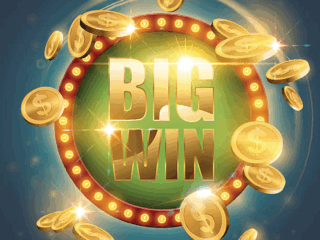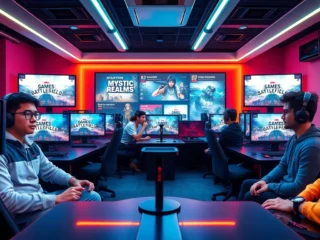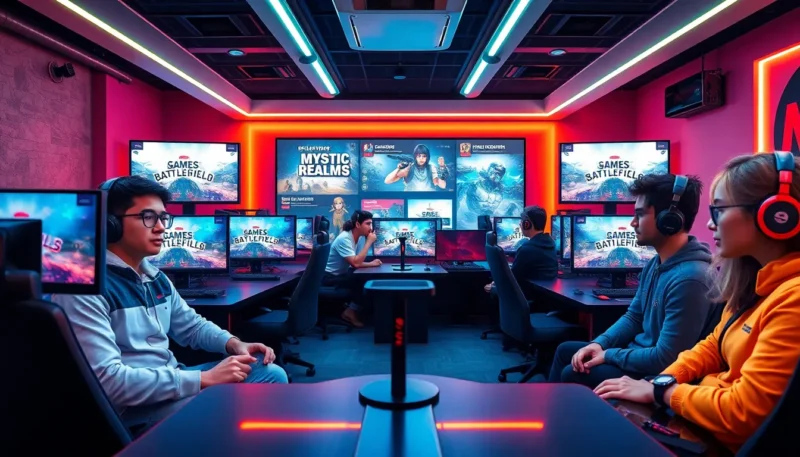
In the glow of our screens, the world has learned to rest and to profit — at once. From streaming marathons to online casinos, from social media scrolls to esports arenas, the 21st century’s playground hums with invisible transactions. Welcome to the new frontier of human recreation — where every moment of joy has an economic pulse.
The Dawn of the Digital Playground
Industry analysts have noted that this transformation did not occur in isolation. Independent review platforms and data research hubs now play a crucial role in mapping this expanding digital terrain — assessing the reliability, safety, and fairness of online gaming spaces. These evaluators act as the quiet custodians of transparency in an industry where trust can be as elusive as luck itself.
Through comparative data, user feedback, and regulatory tracking, such observers provide an empirical backbone to what might otherwise seem a purely emotional marketplace. Their findings reveal not just where people play, but how digital habits evolve, reflecting the intersection of technology, psychology, and economics that defines the modern age of online recreation — helping players identify the trusted casino in Canada for safe and fair gaming experiences.
| Sector | Estimated Global Value (2024) |
| Online Gaming & Casinos | $110 Billion+ |
| Streaming & Digital Media | $95 Billion+ |
When Play Became Labor
The paradox of online pastimes is that while they feel passive, they fuel one of the world’s most active economies.
When we engage in virtual play — whether by placing a small wager on an online casino, watching a streamer on Twitch, or participating in a digital concert — we generate data, the lifeblood of this ecosystem.

Every second spent online is tracked, interpreted, and converted into value. Advertisers pay for impressions, platforms profit from engagement, and algorithms refine their understanding of us. In this equation, our time becomes their currency.
Sociologists have coined a term for this: playbour — the fusion of play and labor. While we relax, platforms work. While we unwind, servers hum, and while we spin reels for amusement, economies spin around us.
The Casino Effect: The Psychology of Digital Reward
One of the most intriguing (and often misunderstood) pillars of modern entertainment is the psychology of reward.
Researchers in behavioral economics have long compared the design of social media notifications, game achievements, and even streaming recommendation systems to the same “variable reward” structure used in casinos.
In a traditional casino, the uncertainty of the next spin or card pull keeps the player engaged. Online, this same mechanism drives engagement — the thrill of the next “like,” the next level, the next win.
This is what psychologists call the dopamine loop — a continuous cycle of anticipation and satisfaction that anchors users to platforms.
The connection is more than metaphorical. A growing body of studies shows that the architecture of online recreation — from gaming hubs to social media — relies on behavioral reinforcement loops first modeled in gambling research.
It’s not purely manipulative; it’s evolution. The platforms that master engagement thrive. Those that don’t, vanish.
The Economic Ripple: From Individuals to Industries
What started as entertainment has grown into a fully realized economic ecosystem.
Online amusement generates not only profits for platforms but also a wide network of secondary economies:
- According to the Canadian Gaming Association, affiliate marketing and referral programs play a crucial role in driving online gaming and casino traffic across Canada, illustrating how tightly linked entertainment and economics have become.
- Streamers and influencers earn from engagement, creating micro-economies around their personal brands.
- Game developers, software engineers, and UX researchers form the backbone of an ever-evolving entertainment infrastructure.
This intricate network mirrors the gold rush of the 19th century — but instead of shovels and dust, today’s miners wield code, creativity, and connectivity.
In a sense, everyone participates:
The player funds it, the creator fuels it, the platform frames it, and the advertiser feeds it.
Together, they create a seamless loop of play and labor — a global market powered by pleasure.
Attention as the New Currency
In the connected economy, attention is the rarest and most valuable commodity.
Every second online competes with a thousand others — each platform designed to win that fleeting gaze.
Online casinos compete not only with one another but also with gaming, streaming, and social networks.
Economists now track what they call the Attention GDP — the measure of time humans collectively spend engaging with online content.
The numbers are staggering: the average internet user now spends more than seven hours a day connected, much of it immersed in entertainment.
But attention doesn’t simply vanish — it circulates. When we give it, platforms monetize it; when they monetize it, advertisers pay for it; when they pay, industries thrive.
Thus, attention has become both gold and gravity — pulling the world into a perpetual orbit of online engagement.
The Mirage of Free Time
Paradoxically, as connected entertainment expands, true rest feels increasingly scarce.
The line between enjoyment and exhaustion blurs. We binge, we bet, we browse — often not for joy, but for distraction.
Philosophers argue that the online age has replaced “rest” with “relief.”
We no longer switch off; we merely switch tabs.
In this new economy, rest itself has been commodified. Apps measure meditation minutes. Casinos gamify relaxation. Even our silence becomes a form of data.
This is not dystopia — its design. It’s the shape recreation takes when capital meets connectivity.
Winners, Workers, and the Invisible Web
Every boom has its winners and its unseen laborers. In the online entertainment economy, both coexist.
Winners include tech giants, developers, and visionary entrepreneurs who turned enjoyment into infrastructure.
Workers, however, include a global network of content creators, moderators, affiliates, and freelancers — many chasing uncertain pay through algorithms that shift overnight.
This hidden workforce powers the screens of millions — from the person managing a casino’s chatroom to the gamer streaming to an audience of two hundred.
Their earnings may fluctuate, but their influence on culture and economy is undeniable.
The creator economy, valued at over $250 billion, blurs the boundary between art and labor, passion and paycheck. It’s a system both empowering and precarious — built on the fragile promise of attention.
Regulating the Digital Wild West
As the financial weight of connected amusement grows, so does the call for oversight. Governments are grappling with how to regulate industries that operate across borders, currencies, and realities.
- Online casinos face tightening regulations on responsible gaming and data transparency.
- Social media and streaming platforms are under scrutiny for their impact on mental health and misinformation.
- Crypto-based gaming and decentralized platforms challenge traditional notions of ownership and taxation.
These challenges echo the early days of industrialization — a new economy seeking its moral compass.
Regulation doesn’t need to extinguish innovation. Rather, it can refine it — ensuring that the next era of online enjoyment remains both sustainable and humane.
Sustainability and the Future of Online Leisure
The future of online amusement will likely hinge on balance — between profit and purpose, engagement and ethics.
Emerging trends like responsible gaming technologies, AI-driven well-being features, and fair-play blockchain models hint at a more transparent future.
Platforms are beginning to understand that trust is the ultimate form of capital.
Audiences now crave not just entertainment, but authenticity — virtual spaces that respect their time, attention, and mental health.
The Poetic Paradox of the Digital Gold Rush
Step back, and the entire picture feels almost poetic.
We are miners in a virtual mine — each scroll, each click, each game a spark in the screen-lit dark.
We seek pleasure, connection, escape — yet in doing so, we become the invisible gears of a vast economic engine.
This new gold rush is not merely about money.
It’s about meaning — how we spend our time, how we value our joy, and how recreation itself has become a mirror reflecting our collective priorities.
And perhaps that’s the real revelation:
The internet didn’t just change what we do in our free hours — it redefined what free time means.
The Currency of Time
In this grand economic experiment, time remains our truest asset.
While money moves through servers and algorithms hum in silence, it is still the human moment — the thrill of play, the pause of laughter, the blink before a bet — that fuels the connected economy.

We stand in an era where the gold rush no longer echoes through mountains, but through networks.
And though the screens may dim, the question remains:
In a world where play is labor, who truly profits from our pleasure?












